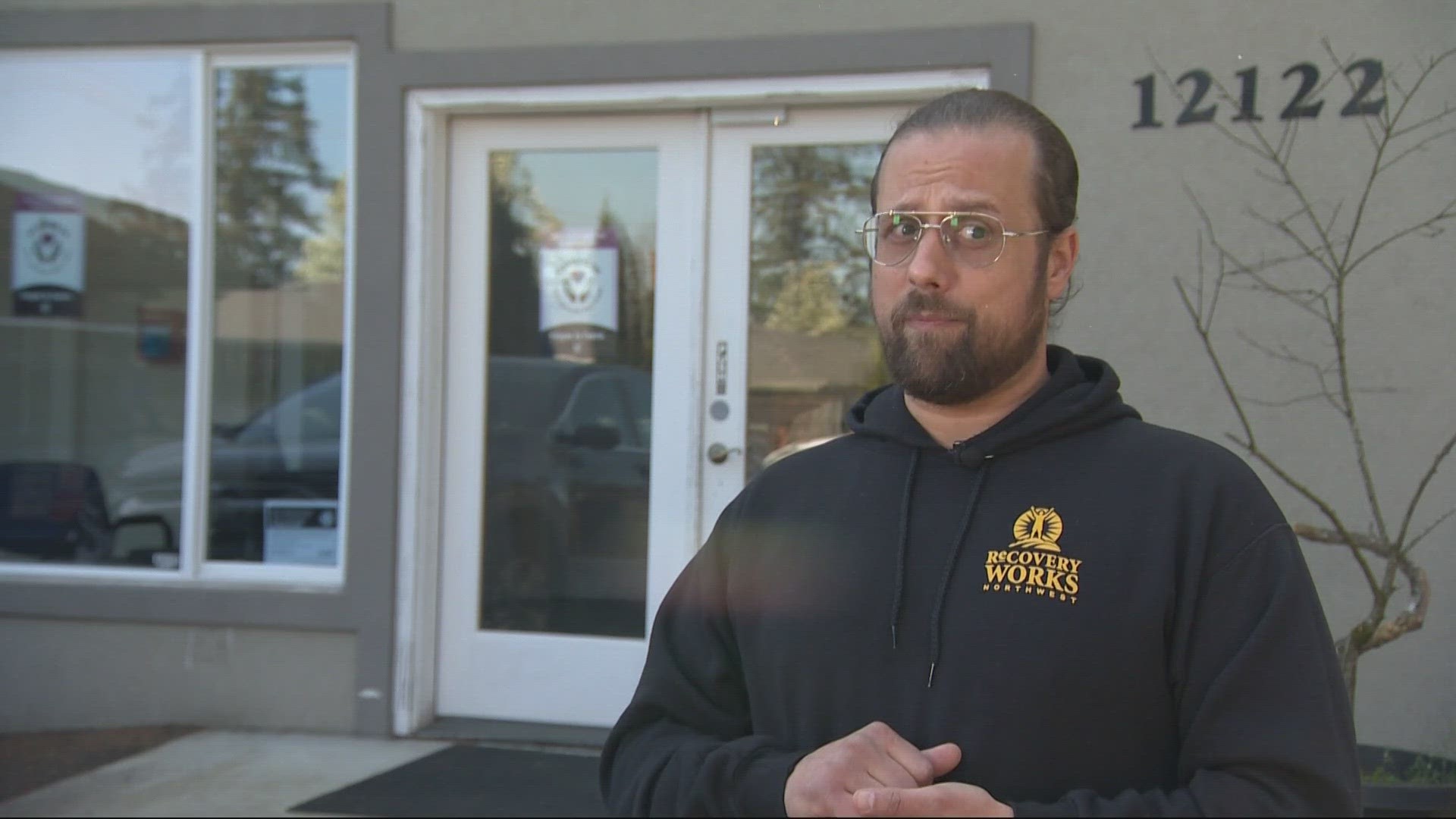PORTLAND, Ore. — Oregon has officially re-criminalized drug possession, with Governor Tina Kotek signing House Bill 4002 on Monday. It makes having small amounts of hard drugs a misdemeanor starting in September.
The passage of HB 4002 brings pressure and a deadline for most counties to come up with a new system for drug users to opt into treatment.
A key part of the law, referred to as "deflection," allows most drug users — when confronted by police — the option to deflect from jail and the justice system into treatment programs. Not every county is required to incorporate a deflection option, but 23 counties have opted in to receive "fast-tracked" funding for deflection programs.
However, with each county responsible for their own approach, how will that work come September, when criminal penalties are back on the table?
Joe Bazeghi, director of engagement for Recovery Works NW, a drug rehabilitation treatment organization, said there's urgency to take action before HB 4002 becomes law on Sept. 1.
"This is a very short time frame to be pulling off a brand new system that has never been created before — this deflection and diversion and conviction with an unclassified misdemeanor," he said. "This is all brand new, so we are we are really composing the symphony as we perform it, here."
Without deflection, drug users would face probation or jail time if caught with small amounts of hard drugs.
Bazeghi said counties like Multnomah County first need more places and staff to treat people.
He pointed to the Recovery Works NW detox facility in Southeast Portland, which houses 16 people and was funded by Measure 110. Bazeghi said those are 16 of the 95 beds available for medically-managed withdrawal in Portland, which he said just aren't enough to address the raging fentanyl crisis.
"If we don't start right now investing in rapid expansion of our treatment capacity, we're going to have a lot of folks getting taken to these diversion/deflection centers and put on a wait list," Bazeghi said. "They'll disappear back into the community."
The concern for Bazeghi and other treatment providers is, come September, police officers may look to take drug users who want treatment to rehabilitation centers, but if there aren't any available options, they'll rely on jails instead.
That could result in fewer people getting access to treatment. Additionally, Bazeghi expects there will be an even higher demand for treatment when drug users are faced with the option of treatment or jail time — even if treatment providers say drug treatment with voluntary engagement is proven to produce better outcomes.
“We're full as it is, so putting every officer on the street looking for folks that are either going to go to jail or take detox is going to result in a lot more calls our way," he said.
Kotek's signature now effectively puts a 5-month timeline for counties to pave a path forward, such as by adding a system to track treatment center capacity and feed that information to police and outreach workers in real-time.
Oregon legislators accompanied HB 4002 with HB 5204 — a budget bill that focuses on expanding treatment options through deflection programs, with a priority on projects that could be developed quickly.
Bazeghi said the clock is ticking for all parties to expand treatment options and work out the new system of care. He said discussions have been fairly positive throughout the recent fentanyl emergency declaration, but immediate improvements are necessary — which require investment.
"We're losing dozens and dozens [of people] every month in Multnomah County to preventable fentanyl overdoses, so no time to wait, got to do it now," he said.
Oregon's Criminal Justice Commission estimates HB 4002 will lead to 1,333 new convictions each year among people who are only charged with possession of small amounts of drugs.

